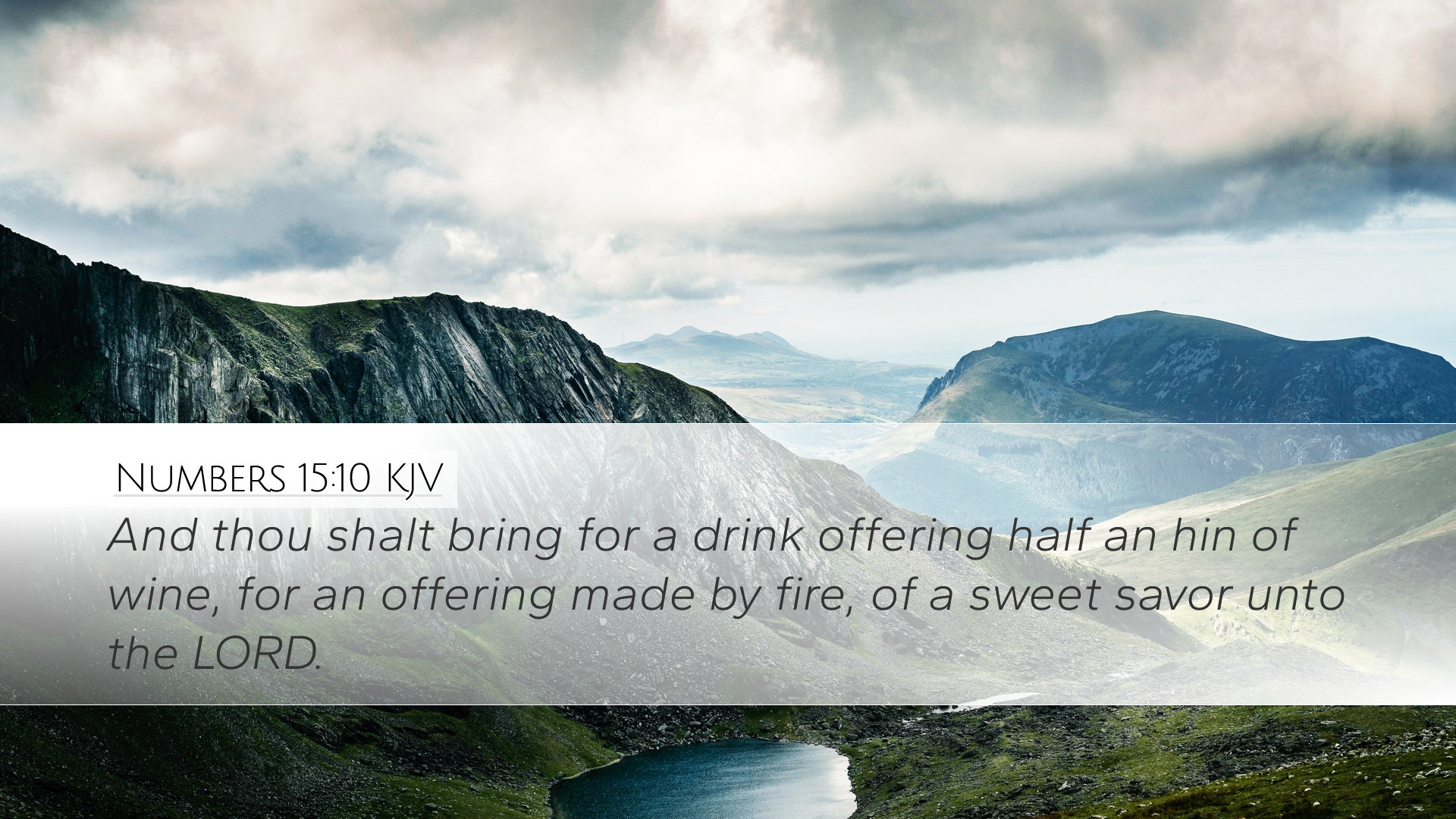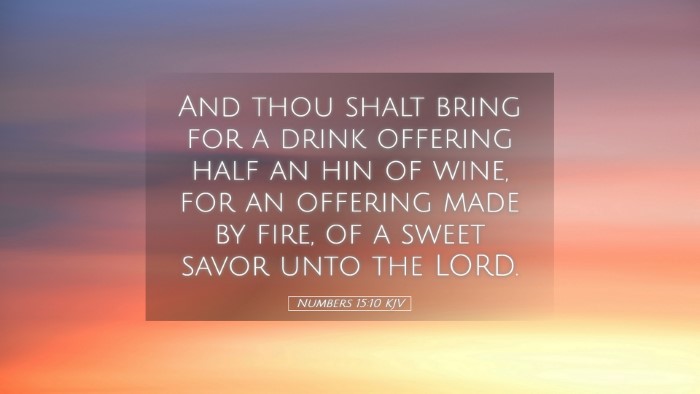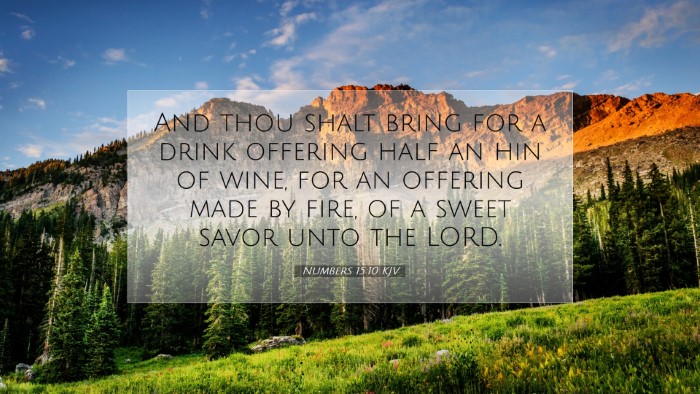Commentary on Numbers 15:10
Bible Verse: Numbers 15:10 - "And thou shalt bring for a burnt offering unto the Lord two young bullocks, and a ram, seven lambs of the first year without spot."
Introduction
This verse is situated within the context of the laws concerning offerings as outlined in the Book of Numbers. It highlights the specifications for burnt offerings to be presented by the Israelites, emphasizing the need for quality and quantity in their worship. The offerings serve not just as rituals but reflect the relationship between God and His people.
Historical Context
The Book of Numbers serves as a historical record of the Israelites’ wanderings in the wilderness and the establishment of laws governing their life as a nation. Following the sin of the spies in Numbers 13-14, God institutes various laws to maintain holiness among His people as they prepare to enter the Promised Land.
Observations from Public Domain Commentaries
Matthew Henry's Commentary
Matthew Henry notes that this command illustrates the importance of offerings in the worship of God. The burnt offering, as a key element, signifies complete dedication to God, reflecting the necessity of offering that which is best and without blemish. He emphasizes that the number of animals indicates the seriousness and reverence with which God’s people must approach Him in sacrifice.
- Nature of the Offering: The selection of young bullocks, a ram, and lambs indicates the high value of presenting offerings to the Lord.
- Symbolism: The burnt offering symbolizes complete surrender and devotion, igniting a continuous relationship with God.
- Quantity: The mention of multiple animals highlights God’s desire for abundance in worship and shows the gravity of communal and individual responsibility to uphold holiness.
Albert Barnes' Notes on the Bible
Barnes elaborates on the significance of regular and systematic worship as stipulated in this verse. He views these sacrificial ordinances as foundational for maintaining fellowship with God, where the burnt offering acts as a means of atonement and communion. He also underscores that the prescribed offerings reflect the broader theological principles of sacrifice, atoning for sin, and seeking God’s favor.
- Continual Atonement: The burnt offering serves as a reminder of the need for atonement, pointing to the ultimate sacrifice of Christ.
- Community Aspect: Shared observance of these sacrificial rites fosters unity and collective devotion among the people.
- Expectations of God: Such specifics reiterate God’s intimacy with His covenant community, where meticulousness in worship signifies honor to His holiness.
Adam Clarke's Commentary
Clarke provides further insight into the practical implications of the offerings. He comments on the necessity of bringing unblemished animals, highlighting that perfection in sacrifice points to God’s ultimate requirement for purity, not only in worship practices but also in the spiritual lives of the worshippers.
- Perfection in Offerings: Unblemished animals symbolize the importance of purity and integrity in one’s relationship with God.
- Relationship with God: The process of preparing and bringing the offerings is relational, suggesting that worship requires effort and intentionality from the believer.
- Historical Reflection: Clarke also reflects on how these offerings prefigure and point towards the redemptive work of Christ, the “Lamb of God” who came as the ultimate sacrifice.
Theological Insights
This passage invites reflection upon the themes of sacrifice, worship, and the nature of God’s covenant with His people. It resonates with the notion that true worship stems from a place of giving our best to God, paralleling the New Testament emphasis on our lives being living sacrifices (Romans 12:1).
- God’s Holiness: The insistence on unblemished offerings underscores the theology of God’s holiness and the need for purity in approaching Him.
- Worship as Relationship: The act of bringing an offering is deeply relational, reinforcing the idea that worshiping God extends beyond mere ritual to encompass lifestyle and heart posture.
- Anticipation of Christ: The repetition of sacrifices serves as a foundational truth that points believers forward to the ultimate convergence of God’s promise in Christ.
Conclusion
In conclusion, Numbers 15:10 stands as a powerful reminder of the importance of reverent worship, the seriousness of God’s commandments, and the principles of sacrifice that thread through Scripture. Both in the Old and New Testaments, the consistent call for purity and dedication speaks to the unwavering nature of God’s expectations for His people. Understanding this verse through the lens of public domain commentaries enriches our theological framework and challenges each of us, as worshippers, to examine the quality of our offerings to God.


